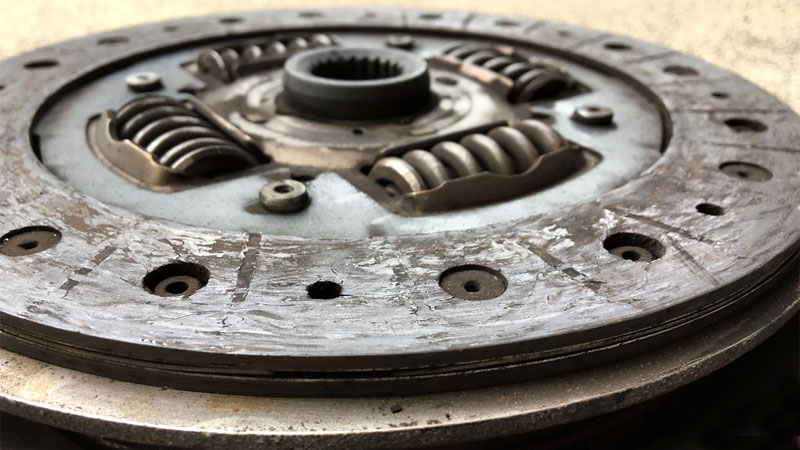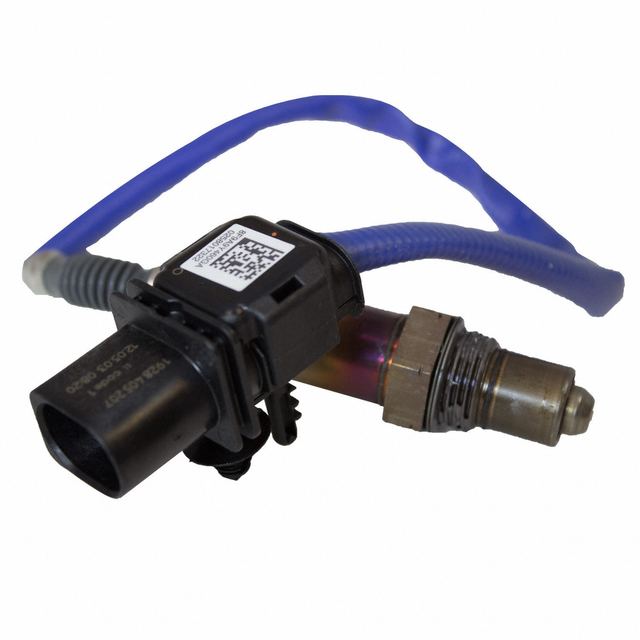Ford Fusion Jerks When Shifting – Troubleshooting And Solutions In 2023!
Owning a Ford Fusion is a delightful experience for many, offering a blend of style, comfort, and performance. However, one issue that can mar this experience is when your Ford Fusion jerks when shifting gears. If you’re facing this problem, you’re not alone.
The Ford Fusion jerks while shifting, typically due to issues with the transmission system. Common causes include low or contaminated transmission fluid, a worn clutch (in manual transmissions), Worn motor mounts, Warped tires, Faulty fuel pumps, problems with the Transmission Control Module (TCM), engine misfires, or faulty sensors.
In this article, we will explore the possible causes of this issue, how to diagnose it accurately, provide practical solutions, and offer preventive measures to keep your Ford Fusion running smoothly. Just stay with us!
What Is The Ford Fusion Jerking Phenomenon – For Those Who Don’t Know!
Before we get into the details, let’s explain what we mean when we say “jerking” in the context of a Ford Fusion. This jerking issue often happens when you press the gas pedal to speed up or when you let off the gas pedal to slow down.

At first, it might not seem like a big deal, but if you ignore it, it could end up causing more serious car troubles down the road.
Certainly! Let’s explore each of the common causes of a Ford Fusion jerking when shifting and provide solutions for each.
Common Reasons And Possible Solutions To The Jerking Problem In The Ford Fusion – Let’s Get Into It!
1. Low or Contaminated Transmission Fluid
This refers to a situation where there isn’t enough transmission fluid in your vehicle’s transmission system, or the fluid has become dirty or polluted.
This can lead to issues with the transmission’s performance and may cause jerking or rough shifting when driving.
Solution:
The solution is straightforward—perform a transmission fluid change or top up the fluid to the recommended level. Ensure you use the manufacturer-recommended transmission fluid for your Ford Fusion model.
As per my experience, changing the dirty fluid regularly quickly overcomes the issue of jerking while shifting.
2. Worn Clutch (In Manual Transmissions)
It is the condition where the clutch, a crucial component that helps you change gears in a manual transmission vehicle, has become old or damaged.
When the clutch is worn, it can result in difficulties when shifting gears, causing jerky or rough movements while driving.

However, Clutches naturally wear down over time with use. It’s essential to recognize the signs of a worn clutch, such as slipping or difficulty in gear changes.
Solution:
- Replace the worn clutch in the manual transmission.
- Have an experienced mechanic inspect it.
- Use high-quality replacement parts.
- Check for related components.
- Follow the manufacturer’s break-in instructions for lasting performance.
3. Worn Motor Mounts
This problem occurs when the rubber or cushioning material in the mounts that support the engine becomes damaged over time. These mounts are essential for holding the engine securely in place and reducing vibrations.
When they wear out, it can lead to increased engine movement and excessive vibrations, potentially affecting the vehicle’s performance and comfort.
Solution:
To address worn motor mounts, start with a visual inspection and check for excessive engine movement. Consult a professional mechanic for confirmation and identification of mounts needing replacement.
Install high-quality replacements professionally to ensure stable engine performance and reduced vibrations.
4. Warped Tires
Irregular or damaged tires can disrupt the vehicle’s balance. In this condition, the shape of a tire becomes uneven or distorted, typically due to uneven wear, over-inflation, or other factors.

This can result in an irregular surface on the tire, leading to issues such as vibrations, steering problems, and a less comfortable ride. Warped or unevenly worn tires can be a contributing factor.
Solution:
- When facing warped tires, visually inspect them for wear or tear.
- Consult a professional for repair or replacement advice, and if needed, replace the tires with matching ones.
- Maintain proper tire care for prevention.
As the owner of a Ford, I recommend you replace the wrapped tires after facing the issue of jerking. This step makes my Ford ride twice as good as before.
5. Faulty Fuel Pumps
In this situation, the fuel pump in a vehicle’s fuel delivery system malfunctions or fails to operate correctly. It is responsible for transferring fuel from the gas tank to the engine.
When it’s faulty, it can cause various problems, including engine misfires, poor performance, and even vehicle stalling.
Solution:
To deal with a faulty fuel pump, diagnose it when you notice engine issues, consult a mechanic for an accurate assessment, and replace it if confirmed. For long-term prevention, follow regular maintenance practices.
To quickly replace the fuel pump, you must watch this amazing YouTube video.
6. Problems with the Transmission Control Module (TCM)
The Transmission Control Module (TCM) is responsible for managing the transmission’s electronic functions. Malfunctions or glitches in the TCM can disrupt the shifting process, leading to jerking.
Solution:
For TCM-related issues, you have to do the following:
- Professional diagnostics for TCM-related issues.
- Repairs or replacements as necessary.
- TCM problems may require specialized knowledge and equipment.
7. Engine Misfires
When your car misfires, you’ll notice significant shaking and vibrations. Despite the misfire, your car can still start and be driven.
The jerking and shaking occur because either one or more cylinders are not firing correctly or are not firing at all. Due to this situation, engine misfires can send irregular signals to the transmission.
Solution:
Address engine misfires by performing regular maintenance tasks such as spark plug replacement and fuel system cleaning. This ensures the engine operates smoothly and transmits accurate signals to the transmission.
8. Faulty Sensors
These sensors play a crucial role in monitoring various aspects of the vehicle, such as engine performance, emissions, and safety systems.

When sensors become faulty, it can lead to issues like warning lights on the dashboard, reduced fuel efficiency, and impaired performance.
Solution:
Addressing this problem involves diagnosing which sensor is malfunctioning and replacing it with a functioning one. Regular vehicle maintenance and sensor checks can help detect and resolve sensor issues early, ensuring optimal vehicle performance and safety.
Now that we’ve identified potential causes and solutions. Let’s discuss how to diagnose the issue accurately
How To Diagnose The Problem – One You Must Know!
- Check Transmission Fluid: Start by inspecting the transmission fluid level and quality. If it’s low or dirty, consider a fluid change.
- Scan for Error Codes: Modern vehicles have onboard diagnostics that can store error codes. Use an OBD-II scanner to check for any relevant codes.
- Examine the clutch: If you have a manual transmission, assess the condition of the clutch. Look for signs of wear, such as slipping or difficulty engaging gears.
5 Preventive Measures To Avoid Ford Fusion Jerks When Shifting – Must Consider Them!
- Regular Maintenance: Follow your Ford Fusion’s recommended maintenance schedule, including transmission fluid checks. Regular servicing can catch potential issues early.
- Gentle Driving: Avoid aggressive acceleration and abrupt deceleration. Smooth driving reduces strain on the transmission.
- Proper Clutch Use: If you have a manual transmission, use the clutch correctly. Avoid unnecessary clutch pedal usage.
- Stay Within Weight Limits: Don’t exceed your vehicle’s weight limits, as overloading can strain the transmission.
- Cooling System Check: Ensure your cooling system is in good condition to prevent overheating, which can harm the transmission.
Congratulations! You’re correctly aware of the causes of the Ford Fusion’s jerking problem while shifting. Feel free to read the discussions on this topic from all over the world on the forum-based website.
Frequently Asked Questions:
1. How often should I check my Ford Fusion’s transmission fluid?
It’s recommended to check your transmission fluid every 30,000 miles or as specified in your vehicle’s manual. Regular checks help maintain smooth shifting.
2. Will fixing the transmission mount solve all shifting issues?
Not necessarily. While a worn-out transmission mount is a common cause, there could be other underlying problems. If the issue continues even after you replace the mount, it’s a good idea to talk to a mechanic.
3. Is jerking when shifting a problem specific to manual transmissions?
No, both manual and automatic transmissions can experience jerking when shifting. The causes and solutions may vary depending on the type of transmission.
In a nutshell
Let me conclude it,
Ford Fusion jerking when shifting means that when you change gears while driving, your car might feel like it’s shaking or bumping. However, you can quickly resolve the issue of jerking Fords by changing transmission fluid, replacing clutches, TCM, motor mounts, worn-out sensors, faulty fuel pumps, and checking the engine misfire.
